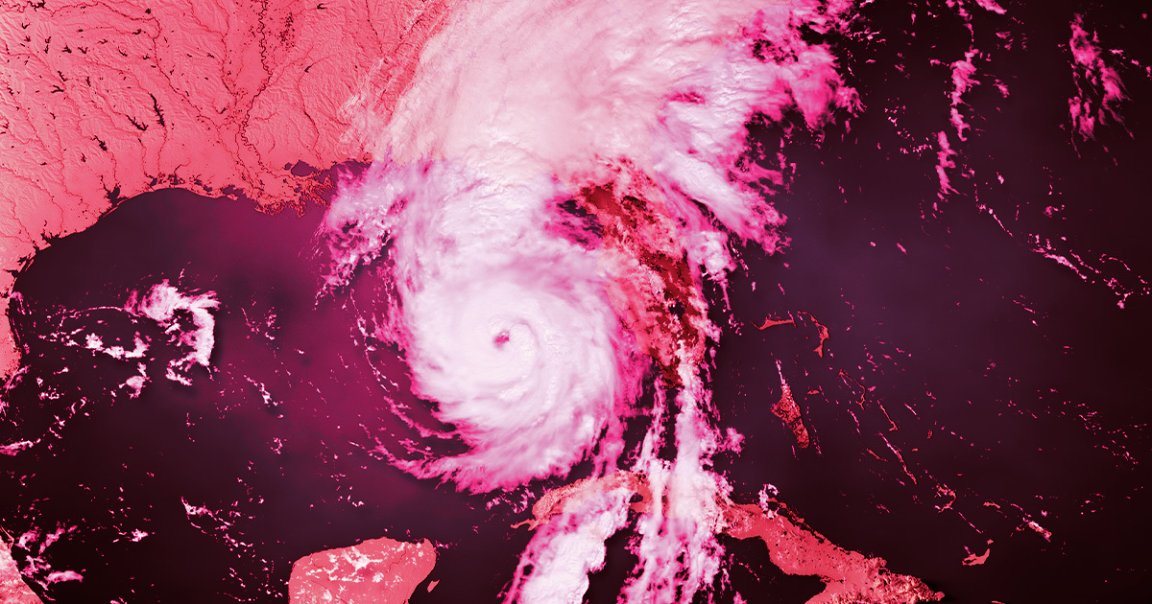
Perfect Storm
As the Southeast hunkers down for its second massive hurricane in a few weeks, it’s becoming increasingly clear that climate change is making monsters out of extreme storms.
First with Hurricane Helene and its devastation of the southern portion of the unprepared Appalachian mountains, and now with Hurricane Milton, experts say that climate degradation is indeed making these storms much worse.
In interviews with the Washington Post, researchers said that a marine heat wave — which occurs as a result of warming atmospheric temperatures thanks to climate change — is the driving factor behind the ferocity of Helene and Milton, with the latter being a perfect storm of sorts.
“All summer long, different parts of the Gulf of Mexico have been in varying states of heat wave,” explained Brian Dzwonkowski, a University of South Alabama oceanographer who spoke with WaPo. “Oftentimes, in the Gulf of Mexico, it’s very warm to very deep depths.”
Like on land, this summer and early fall have seen record-breaking temperatures in the Gulf. As Bloomberg reported a few days ago, while Milton was gaining strength, surface temperatures in the Gulf reached the mid-80s Fahrenheit when last year’s average for October was in the mid-70s.
Monster Mash
With rapidly warming water acting as fuel for storms, this marine heat wave seems to have made a bad situation in the Gulf of Mexico that much worse as Milton’s wind strength hovers just below a Category 5, the highest possible rating for hurricanes.
In a less-catastrophic situation, the warming waters in the Gulf would just emphasize “there’s another extreme condition we should be thinking about,” Dzwonkowski said. But because it fueled such a terrible catastrophe, it has instead become a meteorologist’s worst nightmare.
“Marine heat waves are like the monsters for the future,” coastal hazards researcher Soheil Radfar of the University of Alabama at Tuscaloosa told the WaPo. “We should be prepared against this monster that is going to supercharge tropical cyclones and make them stronger.”
Radfar told the newspaper that using computer models and historical data, he and his team predicted ahead of Helene and Milton that they were between 80 and 150 times more likely than other storms to intensify rapidly.
With those predictions coming true to such a devastating degree, now seems like high time to start listening to the meteorologists raising alarm bells about marine heat waves and the climate change conditions fueling them.
More on storms: Facebook Is Being Flooded With Gross AI-Generated Images of Hurricane Helene Devastation